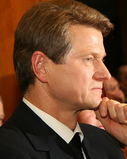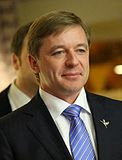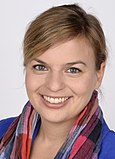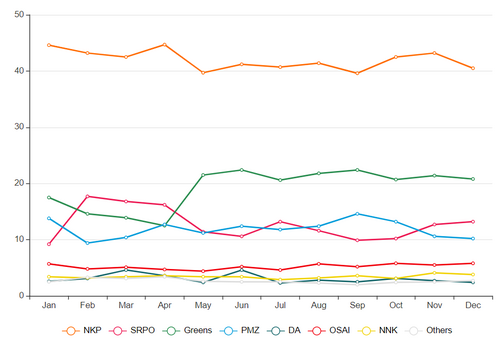2021 Weranian House of Councillors election
| |||||||||||||||||||||||||||||||||||||||||||||||||||||||||||||||||||||||||||
116 (of 232) seats to the Herrstag 117 seats are needed for a majority | |||||||||||||||||||||||||||||||||||||||||||||||||||||||||||||||||||||||||||
|---|---|---|---|---|---|---|---|---|---|---|---|---|---|---|---|---|---|---|---|---|---|---|---|---|---|---|---|---|---|---|---|---|---|---|---|---|---|---|---|---|---|---|---|---|---|---|---|---|---|---|---|---|---|---|---|---|---|---|---|---|---|---|---|---|---|---|---|---|---|---|---|---|---|---|---|
| |||||||||||||||||||||||||||||||||||||||||||||||||||||||||||||||||||||||||||
The 11th election of members of the Herrstag will be held on the 22 January 2021 to elect 116 of the 232 members of the Herrstag, the upper house of the then 777-member bicameral Bundestag of Werania, for a term of six years.
The 116 members up for re-election will be elected via a mixture of single non-transferable vote and first-past-the-post in 74 multi- and single-member districts based on Regierungsbezirke borders. The election will be for members of the Herrstag last elected in 2015 and will be held the same day as elections for the provincial governments of Ruttland, Roetenberg, Bonnlitz-Ostbrücken, Wittislich and Westbrücken.
Electoral process
Werania has since the creation of an elected upper house in 1991 used a plurality voting system based on the boundaries of the 74 Regierungsbezirke in Werania. Some of these electoral districts are single-member and thereby utilise first-past-the-post voting whilst others are multi-member and use single non-transferable vote of between 3 to 9 members. Should a party or coalition gain 117 members of the upper house they will have a simple majority whilst if they have 155 seats they will have a two-thirds majority that is able to amend the constitution.
Voters have to registrar to vote by the 17 December. In order to be eligible to vote one must be over the age of 18, be a citizen of Werania, have a permanent address in Werania and not be currently in prison.
The Herrstag seats up for election in 2021 were lasted elected on the 16 January 2015. Their terms officially expire on the 16 January with the election being scheduled to be held no later then the 29 January 2021. On the 2 December the Präsidium des Bundes Charlotte II announced that the Herrstag would be formally dissolved on the 5 December to be elected for the 22 January.
Background
At the last Herrstag election held in 2018 the governing coalition of the Social Democratic Radical Party of Werania (SRPO) and the Modern Centre Party (PMZ) lost their majority in the Herrstag, relying on the Weranic Section of the Workers' International (OSAI) and the Sotirian Democratic Homeland (SDT) to maintain a legislative majority. The SRPO-PMZ government however lost the 2019 Weranian federal election to the opposition National Consolidation Party (NKP) who formed a coalition with the Democratic Alternative (DA).
Despite having a majority in the lower house, the NKP-DA coalition lacks a majority in the Herrstag despite the NKP being the largest party in the chamber. It has as such been reliant on independent members and the SDT to govern with a legislative majority. Having enjoyed strong support in opinion polls since entering office the NKP-DA coalition has made it a priority to secure a strong majority in upper house elections arguing that the current situation is leading to legislative deadlock. Opposition parties have in comparison argued that a strong opposition is needed in the upper house and that the government if granted a majority will become complacent or be given free reign to implement unpopular policies.
Opinion polling
In the run-up to the election, various organizations conducted opinion polls to gauge voting intentions for both the 2021 Herrstag elections and 2023 Volkstag elections. The polls shown are an aggregate for three polling companies - Weranian Politics Review, Eckhardt and Nord Communications and Staatsmann Group.
| Date | Lead | ||||||||
|---|---|---|---|---|---|---|---|---|---|
| NKP | SRPO | Green | PMZ | DA | OSAI | NNK | Other | ||
| January 2020 | 44.6% | 9.2% | 17.5% | 13.8% | 2.2% | 5.7% | 3.4% | 2.5% | 27.1% |
| February 2020 | 43.2% | 17.7% | 14.6% | 9.4% | 3.1% | 4.8% | 3.2% | 3.3% | 25.5% |
| March 2020 | 42.5% | 16.8% | 13.9% | 10.4% | 4.6% | 5.1% | 3.4% | 3.1% | 25.7% |
| April 2020 | 44.7% | 16.2% | 12.5% | 12.7% | 3.6% | 4.7% | 3.6% | 3.4% | 28.5% |
| May 2020 | 39.7% | 11.4% | 21.5% | 11.2% | 2.4% | 4.4% | 3.4% | 2.6% | 18.2% |
| June 2020 | 41.2% | 10.6% | 22.4% | 12.4% | 4.6% | 5.2% | 3.4% | 2.5% | 18.8% |
| July 2020 | 40.7% | 13.2% | 20.6% | 11.8% | 2.3% | 4.6% | 2.9% | 2.5% | 20.1% |
| August 2020 | 41.4% | 11.6% | 21.8% | 12.4% | 2.8% | 5.7% | 3.2% | 2.3% | 19.6% |
| September 2020 | 39.6% | 9.9% | 22.4% | 14.6% | 2.5% | 5.2% | 3.6% | 2.0% | 17.4% |
| October 2020 | 42.5% | 10.2% | 20.7% | 13.2% | 3.1% | 5.8% | 3.1% | 2.4% | 21.8% |
| November 2020 | 43.2% | 12.7% | 21.4% | 10.6% | 2.7% | 5.5% | 4.1% | 2.5% | 21.8% |
| December 2020 | 40.5% | 13.2% | 20.8% | 10.2% | 2.4% | 5.8% | 3.8% | 2.7% | 19.7% |
Pre-election composition
| ↓ | |||||||
| 46 | 61 | 5 | 5 | 50 | 65 | ||
| Opposition seats not up | Opposition seats up | CB | CB up | Governing coalition seats up | Governing coalition seats not up | ||








